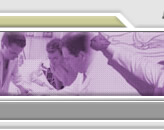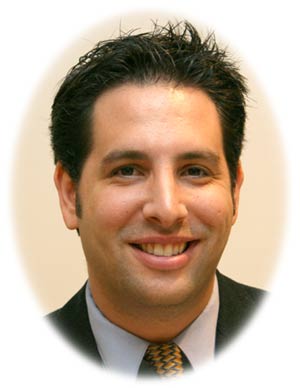



|
Thinking Like a Businessperson
 by Jordan R. Stewart, DPM Timonium Foot and Ankle Center Established July 2006 Timonium, MD During my 3 years of residency, I had excellent medical and surgical training, but unfortunately, I had little training in business. Well, whether you become an associate or go out on your own, you need to think like a businessperson. The first and by far the hardest step in thinking like a businessperson is to throw your emotions out the window. All of us have heard the saying, "Business is business." You need to drill this into your brain and realize that your job is a business proposition for both you and your employer. The second step is to become familiar with the business relationship you will likely find yourself in. Unless you are independently wealthy or a family member or close friend is taking you into their practice, you will likely be seeking an associate position for your first job. Most important, you need to know the difference between an associate and a partner. The dictionary defines an associate as, "A partner or colleague in business or at work." Conversely, the dictionary defines a partner as, "A person who takes part in an undertaking with another or others, especially in a business or company with shared risks and profits." Although these definitions have similarities, the two words are not interchangeable. The main difference between an associate and a partner is that as an associate, you do not take the same risks nor do you benefit from the profits like the partner does. The simplest way to avoid confusing the terms associate and partner is to replace "associate" with "employee" and "partner" with "owner." An employee is defined as, "A person employed for wages or salary" while an owner is defined as, "A person who owns something." Redefining these terms makes it easier to think like a businessperson. When applying for the associate position, you are a paid employee of the practice just like the secretary, medical assistant, office manager, and billing specialist. If you realize this up front, your expectations will not be let down. With all that being said, although you are an employee of the practice, you are set apart from the other employees of the practice because you have the ability to generate revenue. Without the doctors there is no revenue and without revenue there is no practice. I want you to think about the skills you can bring to a practice and the value you think is associated with those skills. Soon, you will be thinking like a businessperson and have a better idea of what you can bring to the table when you find yourself in a job interview.
***The Job Search*** Sounds like some good strategy. A few questions just for help with my own search. How effective was sending the
resumes blind to doctors who you had never met? Did you send them to
orthopaedic groups seeing your training was a 3 year FF/RF? If so,
how was response. Thanks for your time, fraternally, Collin Ball, DPM Editor's Response I did get a few responses by sending resumes "blind." You need to send out as many resumes as possible. You may send a resume to a doc who is considering hiring and if he/she likes what they see in your resume, they might consider you. You may also send a resume to someone who isn't hiring, but knows some who is. It is all about getting your name out there. I did send letters to ortho groups as well. I actually interviewed with a large ortho group in Baltimore and they weren't sure if they wanted to hire a podiatrist or an orthopedic foot and ankle surgeon. I couldn't wait for a response, so I moved on. Unfortunately, most of the ortho groups seem to be looking for other orthopedic surgeons. This partially has to do with call. Ortho groups want docs that are able to take call for ortho issues other than the foot and ankle. The whole process went well, as I got several responses and had several interviews. I decided to start my own practice because I felt it would be the better way to go in the long run. Additionally, I wasn't particularly happy with the offers I had based on my training. You have to analyze the offers carefully. This will be addressed in the upcoming segments.
|













